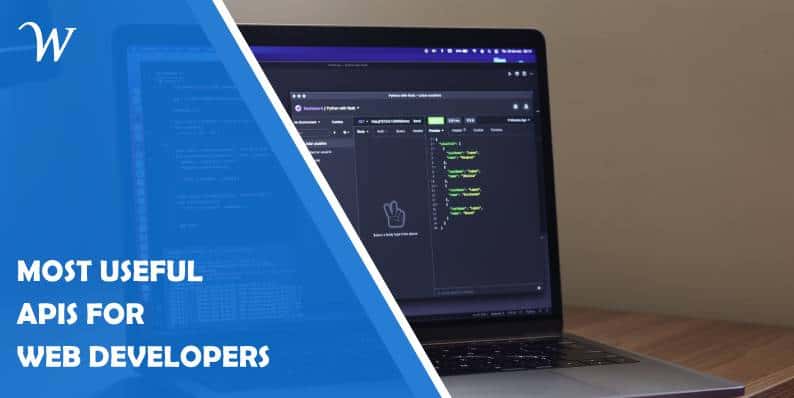Like any other job in programming and development, you want to work less to do more. That’s why utilizing APIs, or Application Programming Interfaces can be crucial. But what are APIs? Well, they are premade programming bases (generally open-sourced) that you can utilize in creating your apps.
To put it in simple terms, APIs are the hidden mechanisms behind various programming products and services. And you might be wondering why you should use them. Well, when it comes to programming, taking shortcuts might save you not only some time but also a lot of stress.
So, why build an app from scratch when you already have the hard work already done by the API. That would be like assembling a car engine every time you’d want to go for a ride. So here are some of the most helpful APIs for Web Developers.
1. Facebook
As one of the most significant social media presences on the internet, Facebook makes sure that you can utilize their API to integrate Facebook into your apps further. After all, having a required Facebook log-in can provide you with additional security as your app’s account layers onto the Facebooks login account service.
Additionally, it can give Facebook targeted ad personalization which may increase your revenue. You can even set up Facebook’s Messenger app as your primary mode of communication between you and your visitors. Utilizing such a large platform that reaches into every nook and cranny of the internet can be especially beneficial to you when it comes to marketing.
2. Instagram
When it comes to fashion on the internet, no platform is as formidable as Instagram. You can market your products there, but you can also share, contact, and analyze trends. That’s why integrating Instagram’s API into your website can be especially useful if you’re building a fashion-oriented website.
You can also track the mentions of your marketing profile to see how many users interact with your products. You can even set it up to automatically upload your posts onto your website so that you can do half the amount of work your marketing team has to do.
3. YouTube
The premier video sharing service YouTube also offers their open-source API, which gives you integrations for their players and data exchanges. With this API, you can easily embed YouTubes’ player onto your website, thus gaining easy access to instructional or promotional videos that may help your website.
This can also be especially useful if you are a blogger that wants to create a website for a blog. And if you use the Data API, you’ll be able to use a wide range of YouTube operations such as creating playlists and even uploading on the website itself instead of embedding.
4. Open Weather
Keeping track of the weather might prove to be vital if you want to create specific sites. That’s where Open Weather API comes in to help you trace the weather forecasts, maps, and even historical data.
With Open Weather API, you can collect all of the global data provided by various meteorological stations and services to ensure that your viewers have the utmost accuracy in your information. Not only will you be able to set up a weather monitor, but you’ll also be able to track various air pollutants such as carbon monoxide or sulfur dioxide.
5. Bit.ly
As one of the most popular APIs on this list, Bit.ly serves an essential role in creating websites. Bit.ly deals in shortening URLs so that you may create perfectly detailed URLs that can then be hidden behind a Bit.ly shorthand. That way, your visitors will view a simple URL instead of an endlessly complex URL you customized for them.
Being such a straightforward service, it’s no wonder how Bit.ly exploded in popularity and now holds the position of the largest and most popular shortening service. Not only does URL shortening help in the aesthetic of your website and its marketability. After all, the shorter the URL, the easier it is to remember it.
6. Google Maps
Sometimes websites need a map as a visual, whether they’re a store or a blog site. So why not use the best map API there is, the Google Maps API. With it, you’ll be able to pinpoint the locations you find enjoyable providing your visitors with a straightforward way of finding your office or landmarks you recommended.
You can build the maps on your website by yourself or even use prebuilt maps that you need to embed into your site. And to top it all of, you can create such a detailed experience that Google Maps can even integrate their Streetview for a realistic depiction of your desired locations.
7. Analytics Management API
And while most of these APIs represent a change on the front end of your website, Analytics Management API is a crucial API that provides some important information you need to keep track of.
With it, you’ll be able to follow Google Analytics data which can prove invaluable when it comes to visitor tracking management. You can even set it up as a report tracking app so that you may more easily keep track of how your website is doing.
Conclusion
When you’re building a website, you must create strong foundations while at the same time saving time wherever possible. That’s why APIs are perfect ‘shortcuts’ as they provide solid features to your website without you doing most of the grunt work.
- W3C Validator: What It Is & Why It Matters for SEO - January 31, 2023
- The Top Five LinkedIn Tools to Grow Your Business in 2023 - December 30, 2022
- Six Best WordPress School Management Plugins 2023 - November 28, 2022
